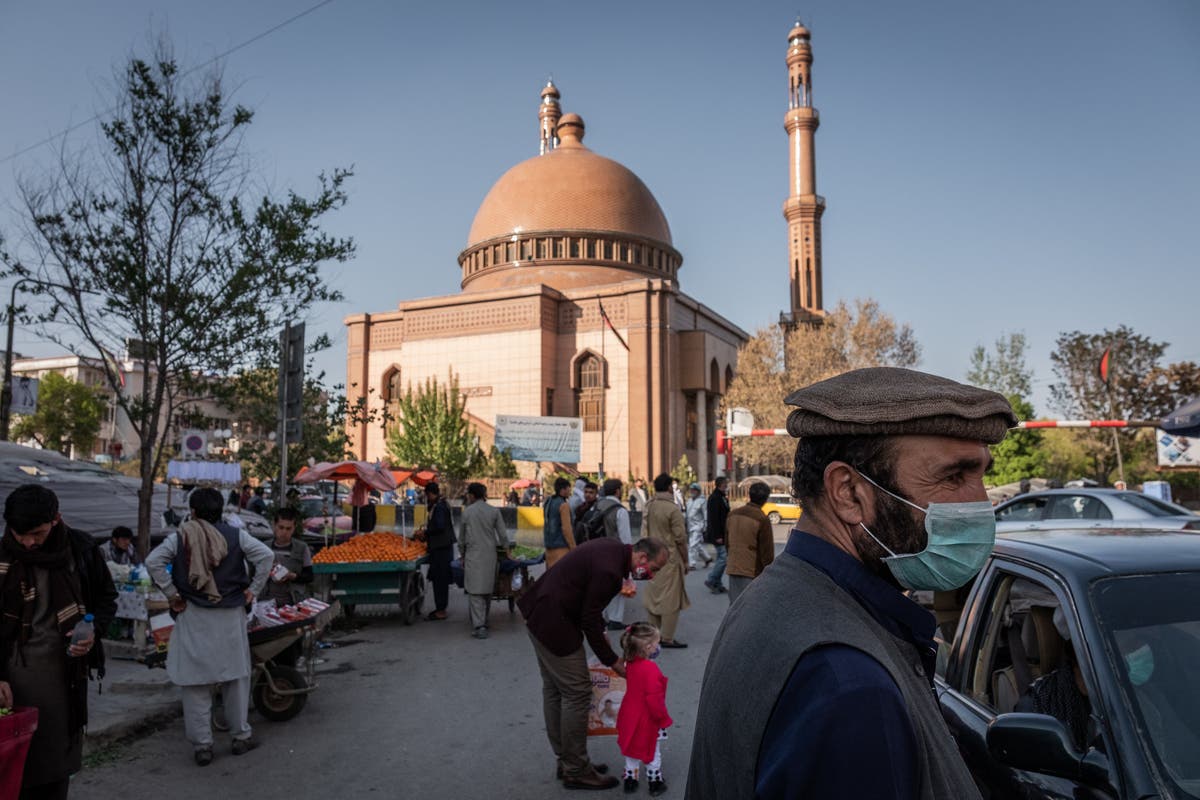fghanistan — Every day, thousands of people swarmed Hakeem Alokozai’s herbal clinic in Kabul seeking their three drops of his Covid-19 “vaccine.” Some carried IV drips, others oxygen cylinders. Some were brought in ambulances, others in the back of Toyota station wagons. They were laborers, officers of the security forces and even lawmakers in the country’s Parliament.
When the Afghan Health Ministry first tried to shut down Mr. Alokozai’s operation several weeks ago, residents were furious — they protested, blocking roads and burning tires. Even after laboratory tests showed that his concoction was nothing but several types of narcotics, the response was: So what? The government has since forced him to leave the city.
The rush on the herbalist in Kabul nonetheless points to Afghans’ rising desperation as the coronavirus overwhelms their country’s struggling health system amid a bloody war with the Taliban.
A herbalist clinic in Kabul that distributed a Covid-19 “vaccine” has been closed by the Afghan government.
An herbalist clinic in Kabul that distributed a Covid-19 “vaccine” has been closed by the Afghan government.
As the virus spreads and the death toll climbs, Afghan officials have said they simply do not have the capacity to test and contain the pandemic. President Ashraf Ghani’s administration, which is largely dependent on aid from donor countries that are themselves grappling with the pandemic, is trying to manage daily violence and focus on averting a famine that officials fear could grip a country where 80 percent of the population lives right around the poverty line.
The Health Ministry said on Sunday that about 55 percent of the roughly 1,200 coronavirus tests conducted in the past 24 hours were positive, bringing the number of official cases to about 25,000. The recorded death toll stands just below 500.
But health experts openly warn that the official figures are at best an indication of a catastrophic picture, not an accurate count. The Afghan health minister, Ahmad Jawad Usmani, said that about 20,000 samples were being taken across the country each day, but that there was capacity to test only about 2,000.
The governor of Kabul, Mohammad Yaqub Haidari, said at a recent news conference that the city’s ambulance service had told him there were about 33 deaths a day. He said his phone rang constantly with news of the dead needing burial, and that those thought to be victims of the virus were being buried in the dark of night.
An Afghan health official assigned to conduct coronavirus tests washing his hands at a hospital in Herat this month.
An Afghan health official assigned to conduct coronavirus tests washing his hands at a hospital in Herat this month.Credit…Jalil Rezayee/EPA, via Shutterstock
“The number of infected is higher than the picture we have,” Mr. Haidari said, adding, “In Kabul, it is likely more than a million people.”
Mohammed Dawood Danish, the head of one of the two government hospitals in Kabul that has been dedicated to coronavirus treatments, said that many patients died before they could be tested.
“Last week, on average, we had eight deaths a day at our hospital,” Mr. Danish said. “Maybe two of them would be tested, while six others who had symptoms died before testing.”
Continue reading the main story
Over the past two decades, Afghanistan’s health system has been largely dependent on subcontracting services to small nongovernmental organizations and reliant on foreign donations for health spending of roughly $5 per person.
The Afghan government sought to make the fight against Covid-19 a demonstration of its competence. Amrullah Saleh, one of the country two vice presidents, said in April that his government had been a “role model of management in the third world” and that it did not “need W.H.O. to come show my nation how to wash their hands.”
But hospitals across the country were soon overwhelmed. In Kabul, there were widespread complaints of a lack of oxygen cylinders. In Herat, the center of the country’s first outbreak, front-line medical workers resigned en masse, saying that they had not been paid for months.
A 100-bed hospital, to be used for the isolation and treatment of coronavirus patients, was under construction in Herat in March.
A 100-bed hospital, to be used for the isolation and treatment of coronavirus patients, was under construction in Herat in March.
Continue reading the main story
In Kandahar’s main hospital, coronavirus tests were positive for about 100 of 900 staff members. Basic health services in the restive region could barely be delivered, and the hospital was forced to stop receiving the roughly 2,000 people needing daily outpatient services, admitting only the most seriously ill patients.
At the main regional hospital in the northern province of Kunduz, 83 of 361 staff members came down with the virus.
“I am resting at home, because I am infected — so are my wife and four daughters,” said Dr. Mohamed Naeem Mangal, the director of the hospital.
Dr. Mangal said he had called the Covid-19 testing facility in Kunduz to arrange tests for his daughters, who were gravely ill, and was told that there was no testing and that they should just stay home and self-medicate.
count | 22

Recent Comments
Mwanchuel Daniel PamMarch 8, 2024 at 11:06 pm
Bob WayasNovember 6, 2023 at 5:30 am
JosephNovember 5, 2023 at 3:47 am